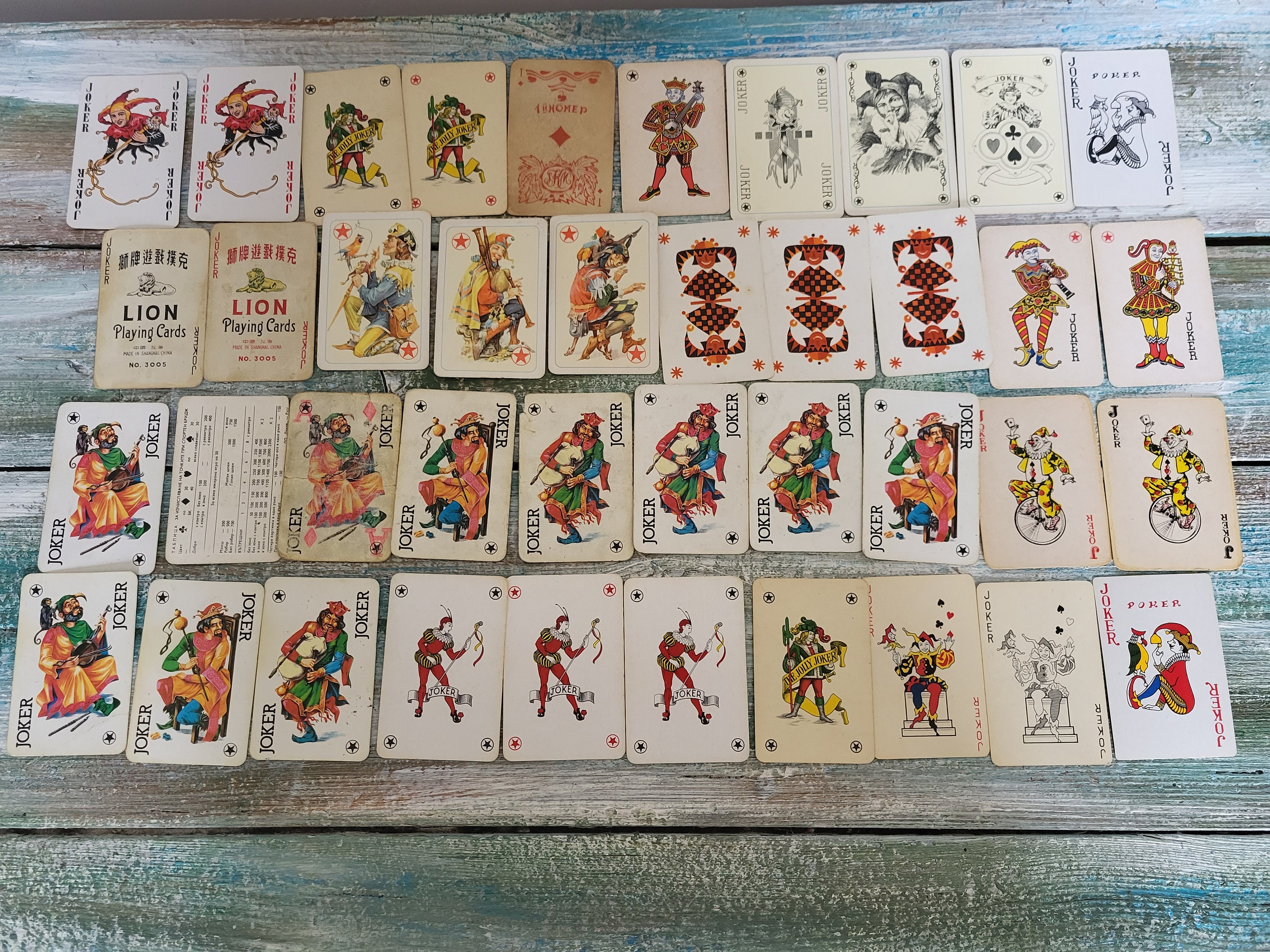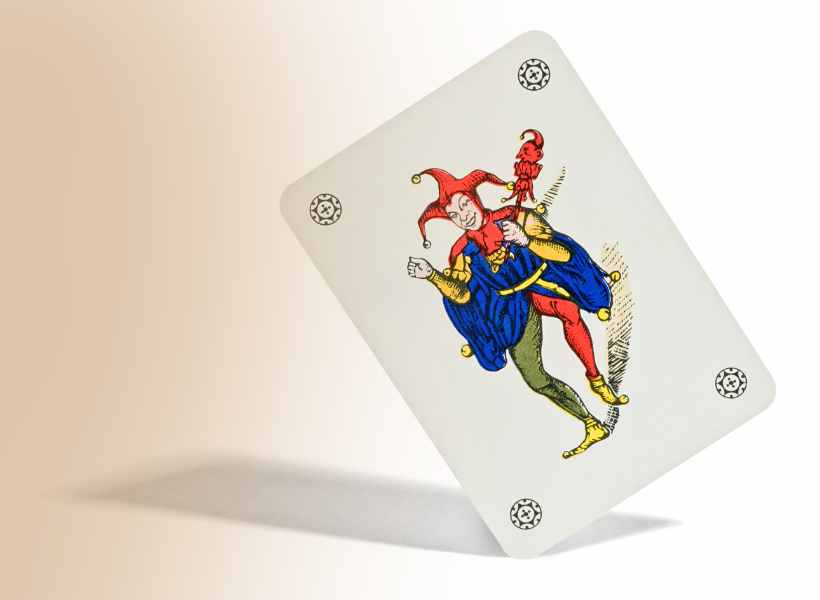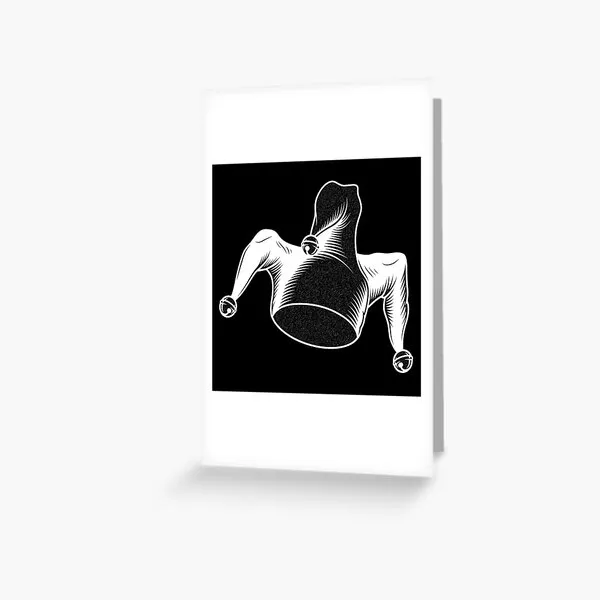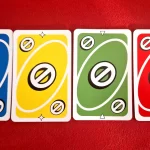The joker card, often depicted as a wild card in a deck of playing cards, has a long history and various interpretations. It is often associated with chaos, unpredictability, and freedom, but what is the true meaning behind this enigmatic card? In this article, we will explore the origins, symbolism, and cultural significance of the joker card.
The History of the Joker Card

The joker card has a long and complex history, with different theories as to its origins. It is believed to have originated in the game of Euchre, which became popular in the early 19th century in Europe and eventually spread to America. Euchre is a trick-taking game where players compete to win the majority of the tricks in each round. The highest ranking card in the game was known as the “Best Bower,” and it was often depicted as a jester or fool.
Over time, the Best Bower began to be referred to as the “Joker” and was given special abilities in the game, such as being able to outrank other cards. This concept of a wild card with unpredictable power caught on, and the joker card was soon included in other card games like Poker and Bridge. However, there were controversies surrounding its inclusion, with some arguing that it disrupted the integrity of the game.
Symbolism of the Joker Card

The joker card has various interpretations and symbolisms, both positive and negative. On one hand, it represents adaptability and flexibility, as it can take on the value of any card in the deck. This trait can be seen as an advantage in card games, but it also reflects the ability to adapt to different situations and circumstances in life.
Moreover, the joker card is often associated with creativity and innovation. This stems from the fact that it is not bound by the rules of traditional cards and can add a new element of surprise to a game. In this sense, the joker can represent thinking outside the box and breaking away from conventions.
However, the joker card also holds negative connotations, particularly in its association with chaos and unpredictability. As a wild card, it is often seen as a disruptive force that can throw off the balance of a game or situation. This can be seen as a cautionary tale against taking risks and embracing too much freedom.
Additionally, the joker card’s trickster persona lends itself to representations of deceit and trickery. This aligns with its role in games, where it can deceive other players and change the outcome of a hand. In popular culture, this aspect is often exaggerated, with the joker depicted as a mastermind behind elaborate schemes and pranks.
Lastly, the joker card has been linked to madness and insanity due to its association with fools and jesters. This concept is explored more deeply in literature and media, where the joker character is often portrayed as a deranged and chaotic figure. This ties into the idea that the joker represents the darker side of humanity and the consequences of unchecked freedom.
Cultural Significance of the Joker Card

The joker card has had a profound impact on various aspects of culture, particularly in literature and art. In Shakespearean plays, the character of the Fool is often associated with the joker card. The Fool serves as a truth-teller and commentator on societal issues, using humor and wit to criticize those in power. This reflects the joker’s role as a disruptor of norms and a reflection of society’s flaws.
Furthermore, the joker card has found its way into tarot cards, adding an element of unpredictability and chaos to readings. It is depicted as a complex and multi-faceted figure, representing both light and dark aspects of the psyche. This ties into the idea that the joker symbolizes the blurred lines between good and evil, or sanity and insanity.
The joker card has also been a source of inspiration for artists, with its iconic imagery and symbolism. From paintings to sculptures, the joker has been depicted in various ways throughout history. In more recent times, the rise of comic books and films has given the joker a new platform for exploration and reinterpretation.
In addition, the joker card has political and social implications, with many groups adopting it as a symbol of rebellion and freedom. It has been associated with anarchist movements, who reject societal norms and advocate for chaos as a means of change. The joker has also been seen as a representation of marginalized communities, who feel discarded by society and find solace in the idea of breaking free from restrictions.
The Joker Card in Popular Culture
The joker card has become an iconic figure in popular culture, particularly in media and entertainment. The most well-known portrayal of the joker is in DC Comics’ Batman franchise, where the villain has been reimagined numerous times over the years. The character’s origins and motivations have been explored in depth, making him one of the most complex and fascinating villains in comic book history.
One of the most acclaimed depictions of the joker on screen was by Heath Ledger in Christopher Nolan’s “The Dark Knight.” Ledger’s interpretation of the character was praised for its unpredictability and sense of anarchy, making the joker a formidable adversary for Batman. The late actor’s intense and chilling performance earned him a posthumous Academy Award for Best Supporting Actor.
More recently, Joaquin Phoenix delivered a gripping portrayal of the joker in the 2019 film “Joker.” The film explores the origins of the character, delving into his descent into madness and his struggle with mental illness. Phoenix’s performance was lauded for its depth and vulnerability, shedding light on the often-overlooked human aspect of the joker.
The joker card has also sparked numerous fan theories and interpretations, with fans dissecting every detail of the character’s appearances in different media. One such theory is that the joker represents anarchy and rebellion, serving as a counter to Batman’s rigid sense of justice and order. Others argue that the joker is a reflection of society’s failures, with his descent into madness mirroring the breakdown of societal norms.
The Controversy Surrounding the Joker Card
Despite its popularity, the joker card has also been met with controversy, primarily due to its negative associations and stereotypes. One of the main criticisms is its link to mental illness, with some arguing that the joker perpetuates harmful stigmas and misunderstandings about those struggling with mental health issues. This is particularly concerning given the character’s tendency towards violence and chaos.
Moreover, the joker has been used by extremist groups, such as the hacktivist group Anonymous, as a symbol of rebellion and anarchy. This has caused concern among some, who fear that the elevation of the joker as a revolutionary figure can lead to the glorification of harmful ideologies.
This controversy has led to debates about whether the joker card should continue to be included in decks of playing cards. While some argue for the preservation of tradition and nostalgia, others believe that it may be time to retire the joker card and replace it with a more neutral option. However, any attempts to remove the joker have been met with resistance, with many arguing that it is an integral part of the deck.
Conclusion
In conclusion, the joker card’s true meaning is complex and multifaceted, with various interpretations and symbolisms. Its history, symbolism, and cultural significance have made it an enduring figure in literature, art, and popular culture. While it is often associated with chaos and unpredictability, the joker card also represents adaptability, creativity, and rebellion against societal norms. However, its negative connotations and controversial associations have sparked debates about its inclusion in decks and its impact on society’s perception of mental health and social order. Ultimately, the joker card can serve as a reminder that even in the midst of chaos, there is always room for freedom and transformation.



